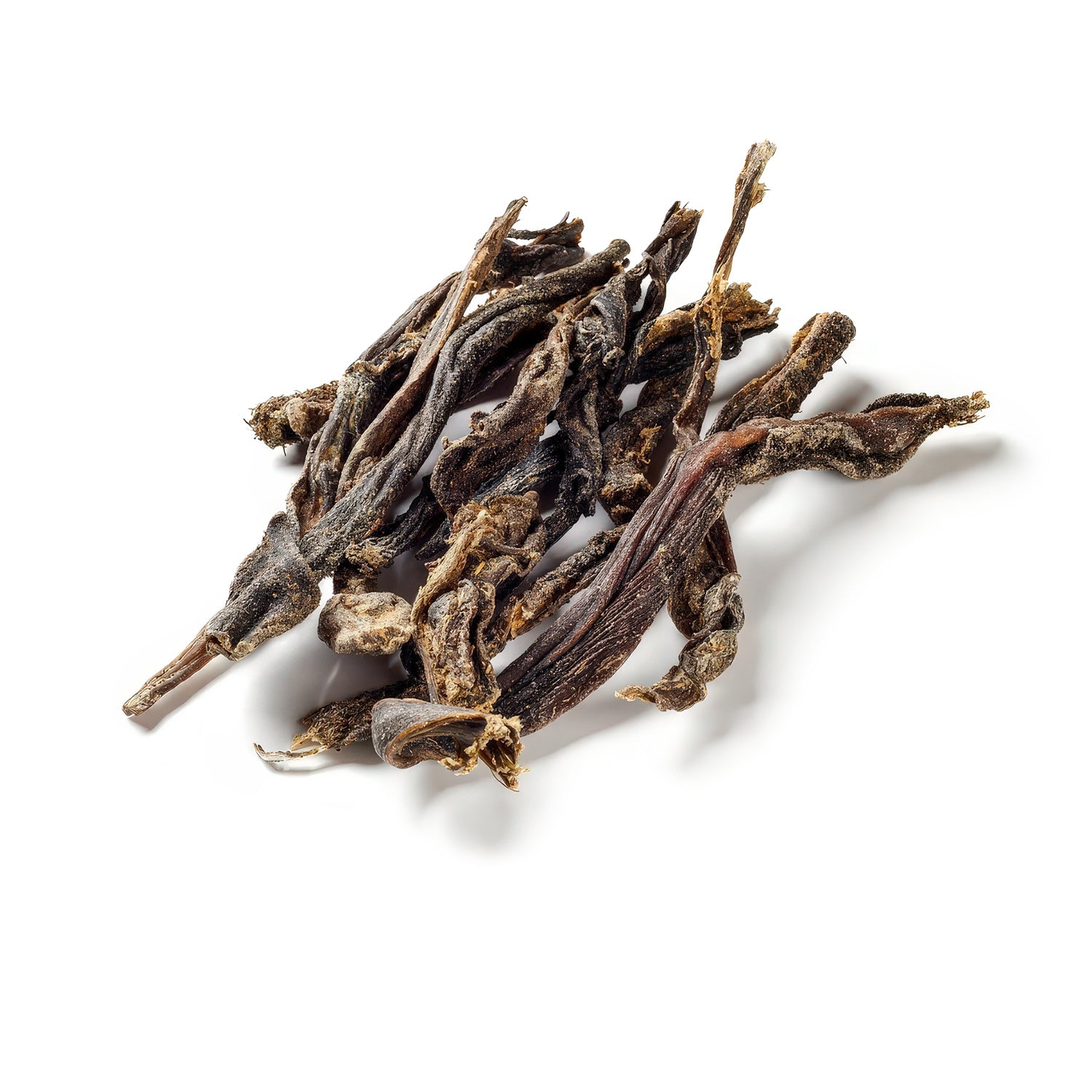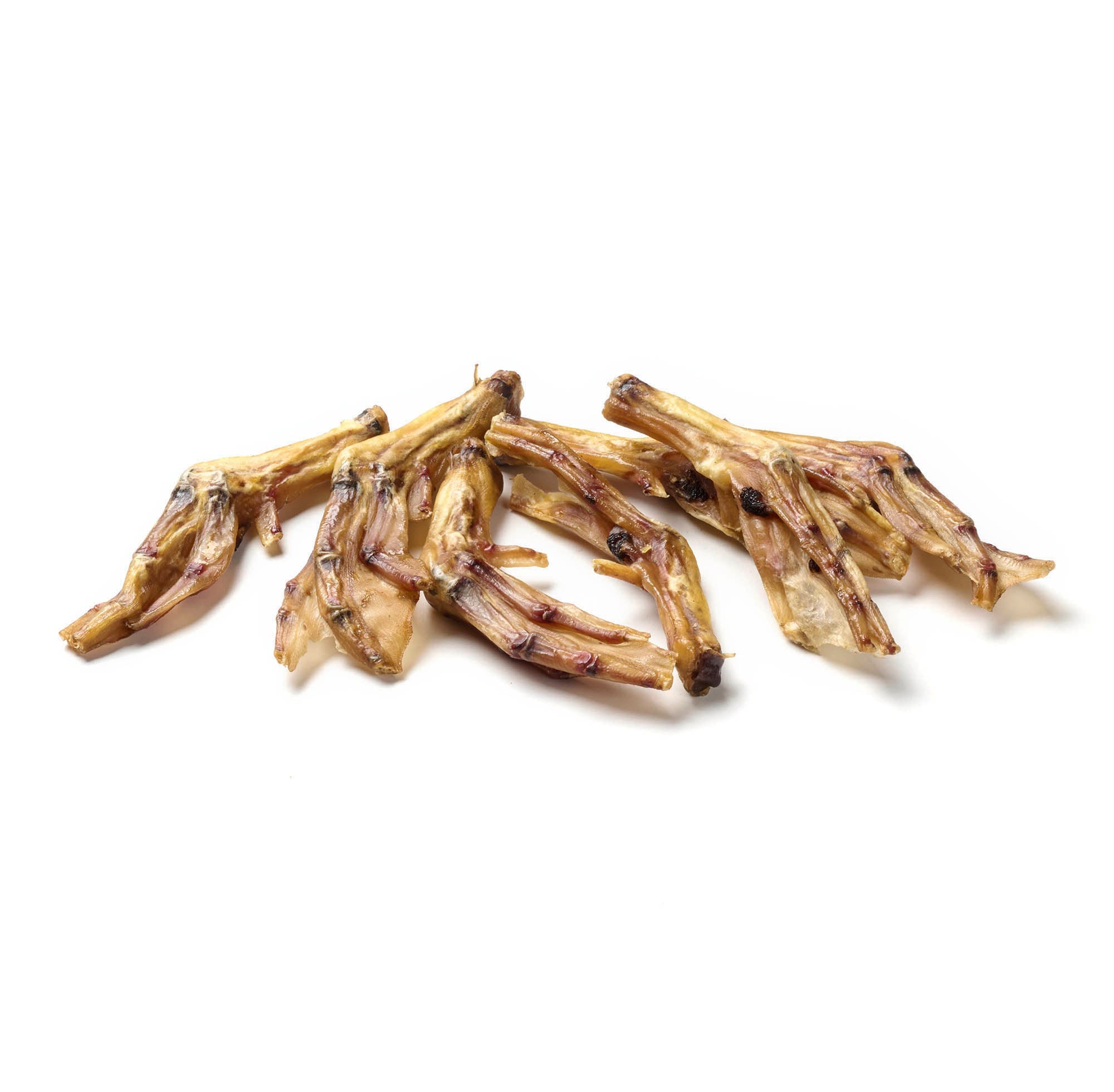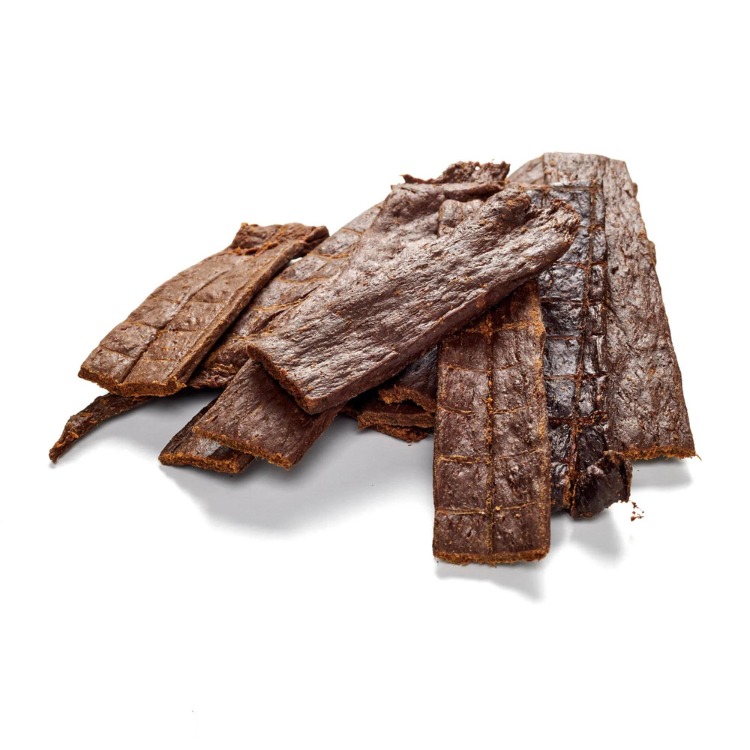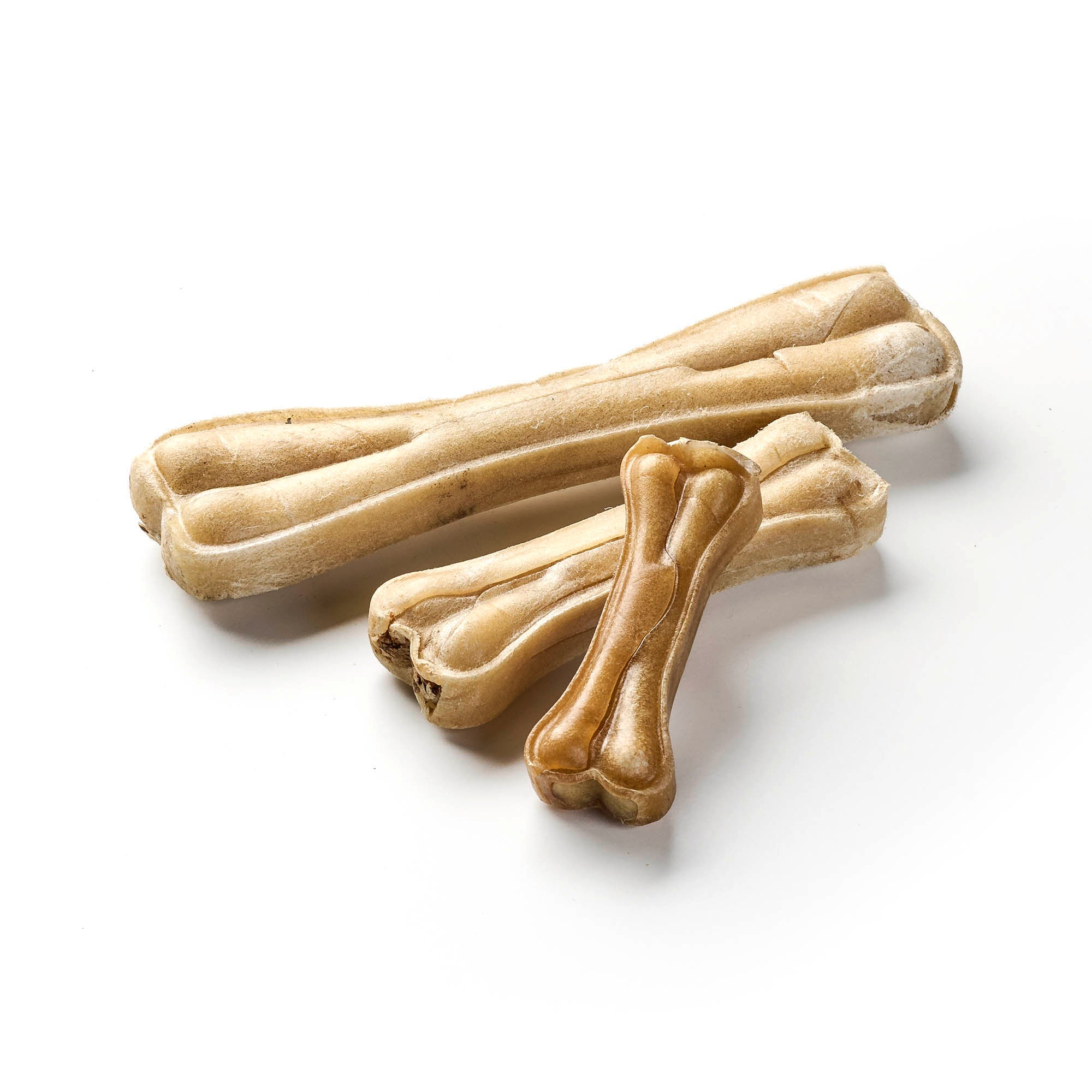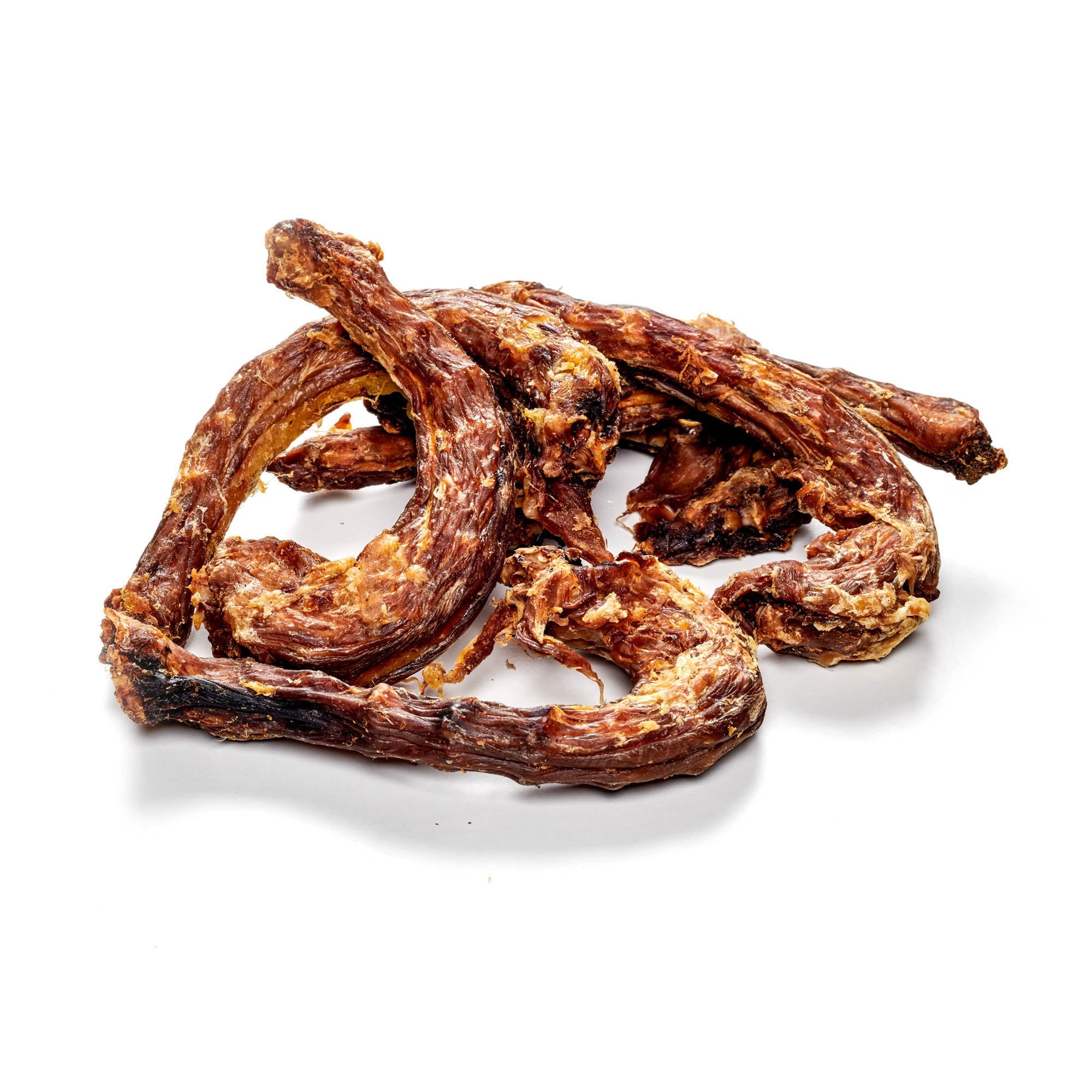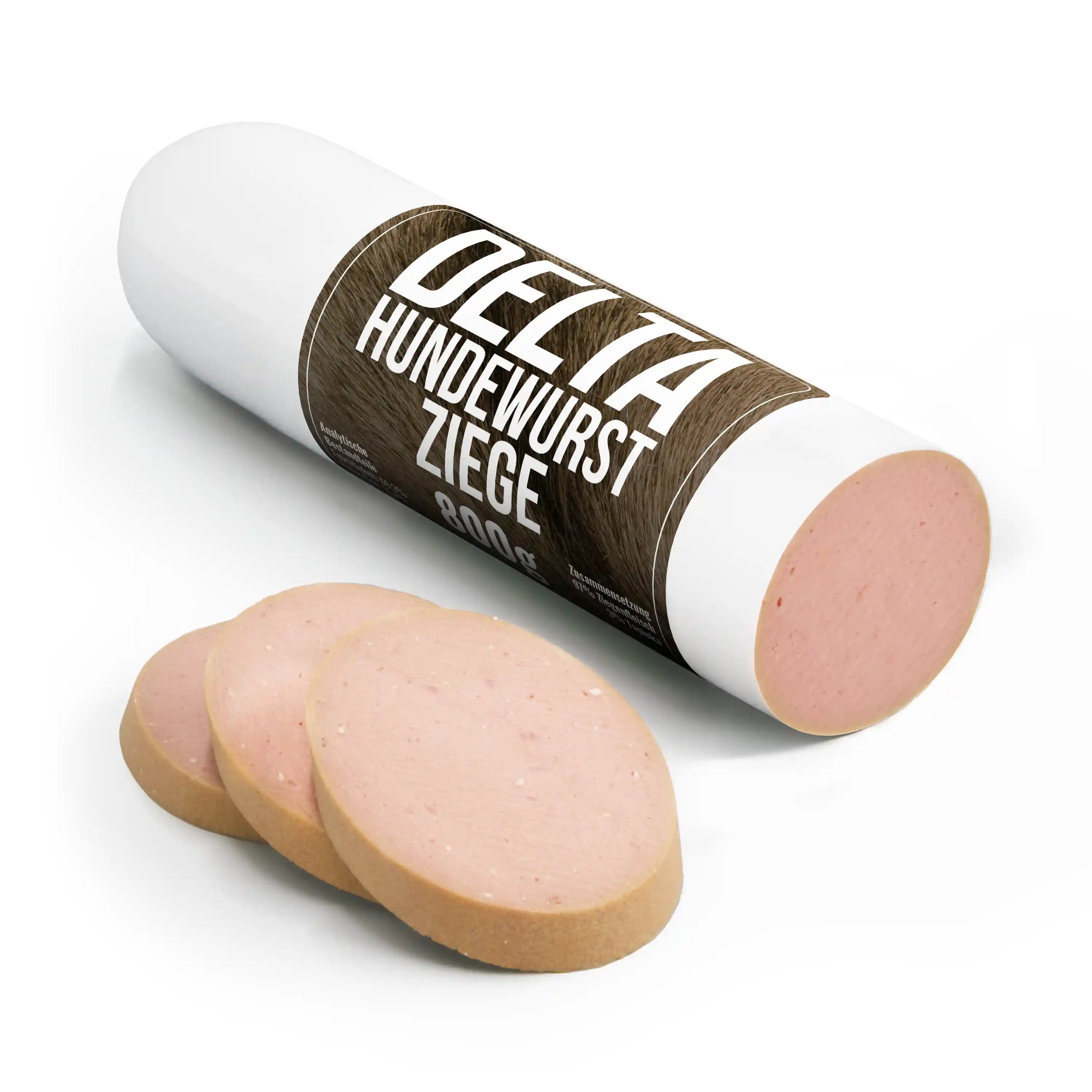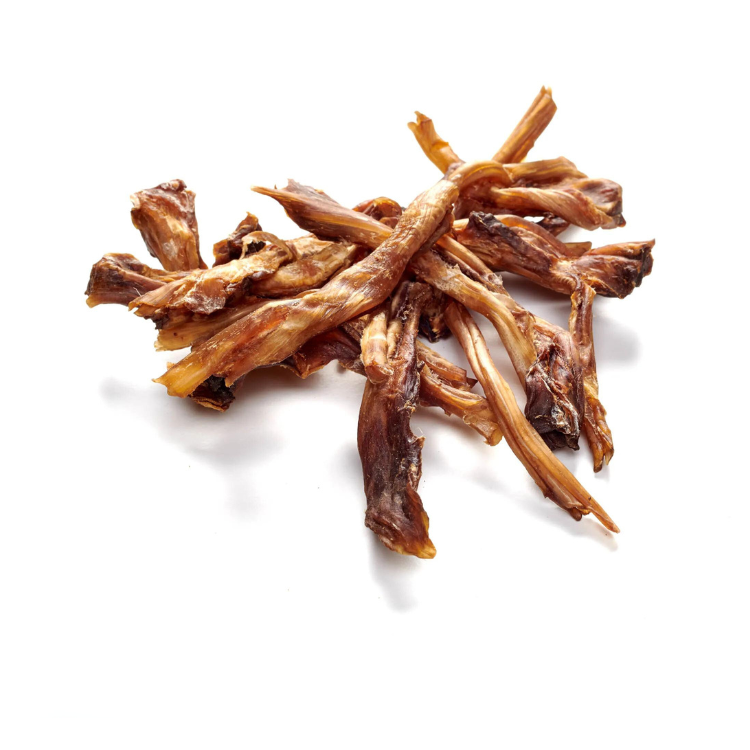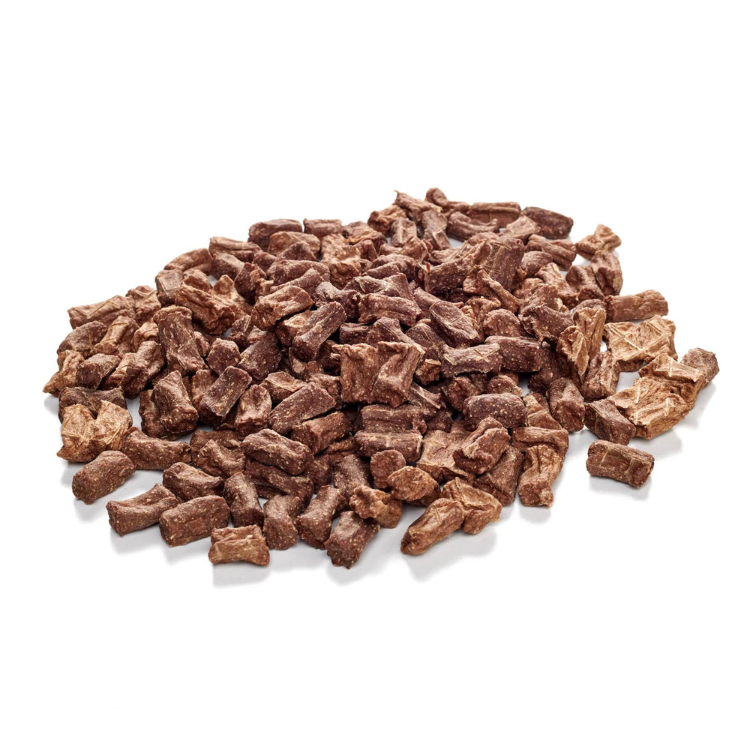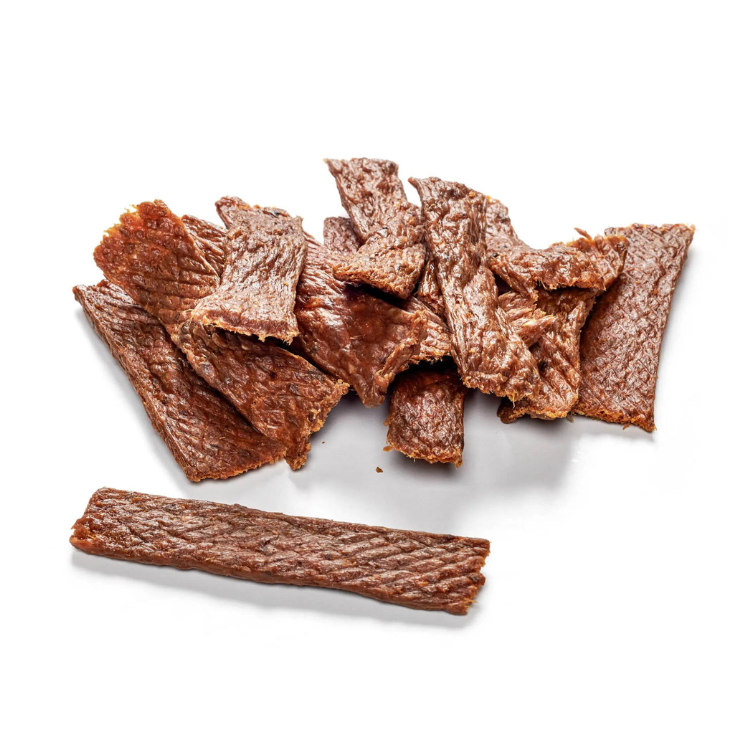
German hunting terrier
Share
The German Hunting Terrier is a breed of dog that is considered a pure working dog and is not really suitable as a family or companion dog. The small German hunting dog is of course all the more suitable for hunting. But this bright four-legged friend may also be of interest to dog lovers who do not go hunting.
Content: German Hunting Terriers
- profile
- Special features
- Nutrition
- Health and care
- Origin & History
- The right accessories
- Conclusion
Discover delicious dog snacks directly from our range!
German Hunting Terrier - Profile
- Character: Temperamental, reliable, obedient
- Size: Small
- Height: 33-40 cm
- Weight: 7.5-10 kg
- Life expectancy: 12-14 years
- Coat type: Short hair
- Colour: Black, dark brown, mottled black-grey, reddish brown markings
- FCI Group: Terriers
German Hunting Terriers - Special Characteristics
Endurance and temperament are probably two characteristics that all terriers have in common. This is also the case with the German Hunting Terrier, which has both in abundance. The long-legged terrier needs a lot of exercise and challenging tasks to be happy. This makes it more suitable for hunters or foresters who rely on the daily help of a loyal dog. With a height of 30 to 40 cm at the withers, these not particularly tall four-legged friends usually weigh between eight and ten kilograms. They are compact and muscular. Their fur is black-dark brown or black-grey mottled and is either very short and smooth or rough and a little longer (see pictures). They have a mask on their face. The wedge-shaped head is typical of terriers and tapers to a point. The relatively small, triangular ears hang forward and their dark, small eyes appear alert and intelligent.
Training the German Hunting Terrier is not easy, as it can be quite stubborn at times. It takes patience, time and, ideally, a bit of experience to tame this breed of dog. If you succeed, however, you will gain a loyal companion in this four-legged friend who only accepts you as a reference person and doesn't really listen to anyone else. He can also be very suspicious of strangers. These characteristics do not necessarily make him the ideal family member. Nevertheless, he is a four-legged friend who is willing to learn and even if he is not the most approachable, he is by no means reserved. With the right training, he is a hunting dog who bravely throws himself into adventure and is not afraid of water. His specialty is hunting predators. This includes badgers, but also clever foxes. The size of the German Hunting Terrier is perfect for penetrating the dens of wild animals . He is supported by his excellent sense of smell, which also means he delivers good results in tracking. He can also retrieve killed game, provided it is not too big or heavy. Basically, he can hunt almost all types of game, such as wild boar, small game or hoofed game. He is often used together with other hunting dogs.
As already mentioned, this breed of dog is not really suitable for families. Of course, hunters also have families. In order for this to work together, the German Hunting Terrier needs work as a hunting dog or at least a lot of recreation in the form of dog sports . However, it is not so easy to get a German Hunting Terrier without a hunting license or forestry license, because the German breeding associations for this breed of dog usually only place them with these professional groups.
German Hunting Terriers - What should be considered regarding nutrition?
The German Hunting Terrier is quite undemanding when it comes to dog food, but it does need a considerable amount of calories. This is mainly due to its incredible workload. The little four-legged friends cover up to 150 km a day when hunting! That's a lot and shows once again how active this breed of dog is. In addition to the amount of food, which should of course always be adapted to daily activities, the quality of the food plays at least as important a role. Dog lovers all over the world argue about what exactly good dog food is. Sugar, flavor enhancers and other artificial additives definitely have no place in healthy dog food. The age of the dog and any illnesses or allergies are also crucial. Anyone who buys such a dog usually does so from a breeder. They are usually happy to advise, certainly also on the best dog food for the German Hunting Terrier.
Discover the range of dog snacks in our store!
German Hunting Terriers - Health and Care
Caring for the German Hunting Terrier is not difficult, but it also depends on the individual coat type. The "long-haired" version understandably needs a little more care. Daily brushing, especially after long walks through the forest, is a must. This not only keeps the coat beautiful and does not mat. It also prevents loose hair from spreading everywhere and cleans the coat of the coarsest dirt. With a bit of luck, you might even catch a tick or two before they bite. Looking for ticks is an important point. Tick repellent also helps here. Other parasites such as worms or mites should also be prevented. Discuss this with your trusted vet . Since the German Hunting Terrier likes to go into the water and washes itself, so to speak, a dog bath with dog shampoo is only necessary in the dirtiest of emergencies. Ears, eyes and teeth are more important. These must be checked and cleaned regularly. There are special cleaning sets for this. For dental health, there are also many healthy chewing items or chewing bones that not only clean the teeth, but also train the chewing muscles and keep the dog busy.
German Hunting Terrier - Video
German Hunting Terriers - Origin & History
The German Hunting Terrier is descended from the Fox Terrier. After the First World War (1914-1918), the hunting cynologists Rudolf Frieß, Erich Grünewald, Dr. Herbert Lackner and Walter Zangenberg wanted to breed a dog that, unlike the Fox Terrier, was more specialized in hunting. The Fox Terrier was becoming more and more of a fashion and companion dog, but not everyone liked that. The new breed of dog was supposed to be tough, versatile and fond of water, while also showing a strong hunting instinct. With the introduction of the "Old English wire-haired original terrier" and the Welsh Terrier, the new breed of dog, the German Hunting Terrier, was created after years of breeding. In 1926, the first German Hunting Terrier Club was founded. In 1954, the FCI recognized the German Hunting Terrier as an independent breed of dog. To this day, this breed of dog is designed and bred specifically for hunters. Therefore, breeders are required to only sell their dogs to practicing hunters. In order to avoid getting into trouble with the association, they usually stick to this.
German Hunting Terriers - The right accessories
In addition to daily exercise and the tasks as a hunting dog, the German Hunting Terrier needs a garden or another way to get outside. This breed of dog also likes to spend the nights outside. It is not uncommon for them to be kept in kennels. A house with a yard or garden and an escape-proof dog fence would of course be better. A perfectly mown golf course lawn is not a good option, however, as this dog likes to dig holes and shows amazing ambition in doing so.
Conclusion
Anyone who wants a German Hunting Terrier should contact the German Hunting Terrier Club. However, only those who have the appropriate qualifications have a chance of being successfully adopted. With the right owner in the hunting business, a great friendship can develop. Provided that the training is consistent, there is nothing wrong with a versatile hunting dog that can also fit in well with the family.
Reward your best friend with our dog treats!

